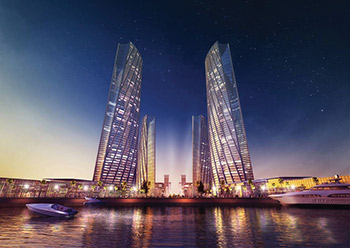
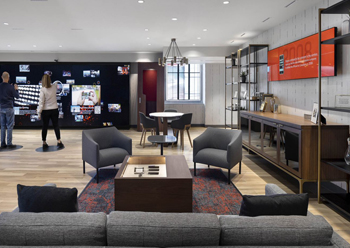 Creating a place with more collaborative, specialised uses for sharing, socialising and learning from others fosters a stronger workplace culture.
Creating a place with more collaborative, specialised uses for sharing, socialising and learning from others fosters a stronger workplace culture.
CallisonRTKL, a global consultancy specialised in architecture, design and technology, has unveiled key trends that will advance the built environment this year.
Taking into account new industry regulations and social distancing guidelines, a large emphasis of the year will be focused on re-envisioning spaces leveraging experienced master-planning to effectively manage spaces better, say industry experts from CRTKL.
Meeting smart city and sustainability goals remain key as building operators in the Middle East continue to work towards meeting the objectives set by the region’s visionary leadership as well as creating happier and liveable urban communities. Innovation and technology adoption are key factors in helping to drive this.
Matthew Tribe, Executive Director at CRTKL and Global Leader for both the firm’s Planning & Urban Design Studio and its Resiliency initiative, says: “This year has been like no other. But in any crisis, opportunities are uncovered.”
“The pandemic’s impact on the Middle East – on where we work, on how we travel, and on the way we live – will be felt across the course of this decade. Over the course of the next year, we expect to see those changes impact how we design the build environment around us,” he adds.
On the GCC residential sector, CallisonRTKL says it expects a market shift from the apartment to the villa, as more and more individuals start looking for spacious residences when working from home.
“With working from home a central aspect of post-pandemic life, residential requirements have shifted dramatically during 2020. No longer are residents in the GCC looking for apartments in central locations with a short commuting time to offices,” explains Obada Adra, the associate director at CRTKL. “Rather, real estate trends are indicating that consumers are happy to live in the suburbs in exchange for more living space for a home office and other amenities. Such a transition in consumer appetite will be transformational in the design and development of future real estate offerings in cities in the GCC.”
Adra points out that mixed-use developments will continue to act as drivers of community and economic vitality in 2021. Their use will continue to be popular among communities looking to re-engage and re-connect, following the conclusion of the pandemic, he adds.
Geoff Ford, Associate Director at CRTKL, says: “Be it shopping and entertainment districts, healthcare institutions, airports, sports complexes or hospitality infrastructure, there will be new methods of valuation across all property types as single-use buildings merge into more mixed-use, digital and adaptive environments. Over the years, these transformations have already began taking shape but will inevitably evolve further in 2021.”
“As such, the historical nature of ‘zoning’ will be eliminated and the main goal will be clear - one asset, utilised flexibly, catering for a range of users,” he adds.
Workplace
Workplace design will radically change following the levels of technological integration which have been catalysed by the pandemic. The integration of data, of personal devices into the workplace, and of continued focuses on wellness will foster new opportunities for the future workplace.
“There needs to be a reason to come to work,” says Jeanne Wood, CRTKL Senior Associate Director. “Having the support – whether it’s technical or operational that helps ease the task or type of work being done that day is important to create that hub. Also, creating a place with more collaborative, specialised uses for sharing, socialising, and learning from others fosters a stronger workplace culture.”
Hospitality
Meanwhile, wellness will become an integral aspect of the global hospitality sector, which is witnessing business worth $5.5 trillion potentially being wiped off.
Hospitality design will reflect that through becoming more flexible and community orientated.
Prodipto Ghosh, Senior Associate Director at CRTKL commented: “Over the years, the regional hospitality sector has become renowned for its open, decentralised and urban layout. However, following the Covid outbreak, the sector turned to a more protected, controlled, and wellness-focused model, leaving much of the assets underutilised. With the declining construction costs, many operators are now able to spend on planning and tending to new projects or better yet – repurpose existing infrastructure to meet currents demands. In 2021, expect to see co-working spaces being integrated into the hotel common areas and monetise these spaces on a mutually beneficial basis as the flexible and hybrid working revolution booms. Aside from repurposing interior, wellness will of course also continue to be prioritised over all else.”







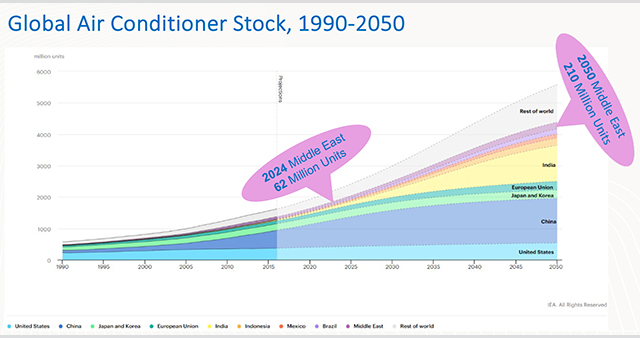






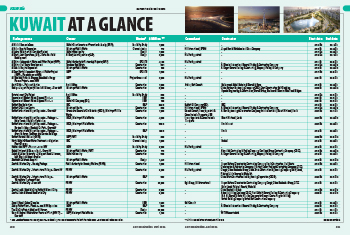






_0001.jpg)


.jpg)




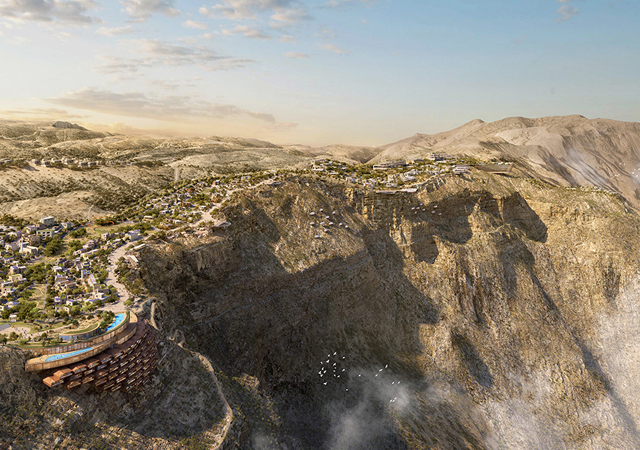











.jpg)








.jpg)


